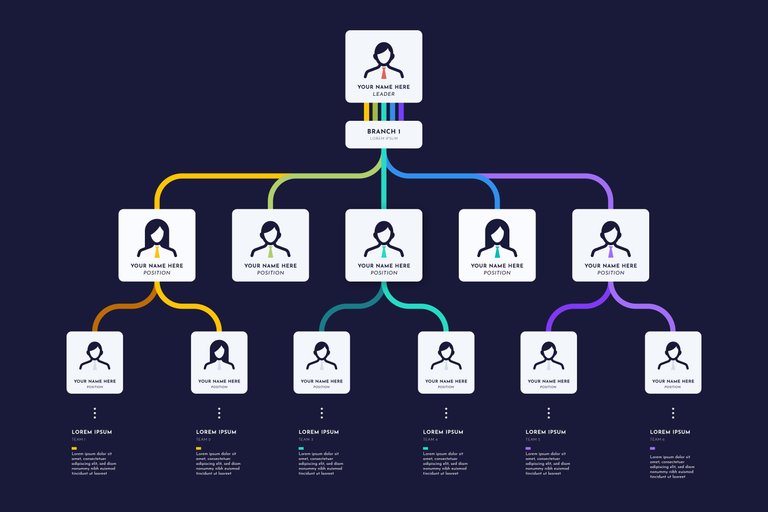What I learned in the course taught by Tutellus

Fear paralyzes us in all aspects, particularly financial and to mitigate it the best thing to do is to educate ourselves, so we will avoid a mistake that we can regret, that's why whenever I can I attend online trainings from which I learn a lot and I feel more confident. Today I want to share what I learned in this masterclass, adding my personal analysis and conclusions of each topic, I hope it will be useful for those who read me.
1. Fear of falling into Phishing or scam.
Phishing is a common and successful practice in my country, it is about receiving emails from misleading sources posing as banks or reliable sources and when you click on them they download a virus that takes sensitive information, also text messages or phone calls are the most common, where people are tricked by posing as others to deposit money. Some include threats and extortion, forcing victims to hand over their money for fear of reprisals.
Scams are clever and the easiest to fall for because they include promises of refunds, or promotions that do not exist and people innocently fall for them and then find out.
Golden rule 1
This is one of the main fears when you start investing and owning cryptocurrencies. The way to avoid it is to ignore any unknown message, avoid clicking on suspicious links and do not answer calls from strangers or prolong a threatening conversation.
2. Fear of being part of a Ponzi scheme
This fear appears when you are already deep in the Ponzi system, after investing time, money and taking other people with you to enter, you realize that it was all a hoax, that is when the fear appears, but at the beginning you think you will be a millionaire easily and quickly, that is the first mistake.
If you are one of the first to find out you may recover your initial investment, but it is very unlikely that someone who enters a Ponzi scam will come out without losses, since it is not only about money, but also about the defrauded trust of the people who followed you, I think the hardest thing about falling into a Ponzi if you are a person with values is to face the loss of the friendships that trusted you. Currently, in Venezuela there is a system of these active, the fraudsters are using Binance charging high amounts of USDT to enter and even offer loans with interest under the promise that they will have back their investment and a large capital for their referrals, they make face-to-face and virtual meetings and by Telegram is that they communicate, I know all this because a relative offered me to enter and half the information I had even added me to the Telegram group, it is very sad how people fall into these systems, for not being informed and trained.
How to avoid falling into a Ponzi, the first thing to remember is that this system is based on a pyramid structure scam, they require you to invest with the condition to bring referrals to the system and get more income and profits as you bring more and more people, if there is a pyramid is not a reliable financial system, another point to take into account is that they offer a return of 10%, 20% and even 40% per month, this mathematically is an impossible system to maintain, no project will give you such profitability.

Golden rule 2
No crypto investment is safe, no one can assure you a monthly profitability and even less a high one. If they do, it is probably a Ponzi scheme.
3. Fear of the Treasury
Declaring assets correctly to avoid penalties is always a fear that is present and becomes more acute according to the legislation that surrounds us, this fear increases if it is legal or not the use of cryptocurrencies in your country, in my particular case I live in Venezuela and here is legal the use of cryptoassets, there is even a legislation that is governed by rules and sanctions for its use, there was a cryptocurrency called Petro that was backed by several reserves of natural resources including oil, gas, gold, diamond, among others, but it failed after two years.
The fear towards hacienda is growing in my country because there is also the blockade to several Exchange starting with Binance; however, people make use of their services, in my case I had to open a new bank account in the only bank that allowed trading with Binance as long as the amounts are low and the income is justified, but the fear exists and every time I get a notification message that the operations are not available for my country due to sanctions, I get a small microinfarction.
Golden rule 3
Check the legislation in your country and always declare your assets.
4. Fear of not knowing how to create or use a Wallet
This fear is very common when you start, you confuse the types of wallets and do not know how to use the keys to transfer funds, what should be clear and is not recommended is to keep the keys in the cloud, or on the company's server, or private server, it is recommended to have them in physical perhaps on paper, but it is not a reliable and infallible method, as it is a very broad topic I prefer to leave it up to here.

Golden rule 4
Never share neither your seed nor the private key of your wallet with anyone. And always keep them in physical format and never on the Internet.
5. Fear of losing a prize or opportunity
There are currently many AirDrops that people take advantage of to win the scammers know the addresses where these prizes are directed, since the information is available to anyone in the block explorers, then these scammers are ingenious and can trick people by telling them that they can also win an NFT or more AirDrop and send them a copy of the original page with a slight variant and when they click on it they lose all the funds.
Particularly I always forget to check the URLS and could easily fall into one of these scams, but after watching this course now I will be more vigilant about the origin of my pages.
Golden rule 5
Always keep an eye on the URLS of the DAPPs you connect to: only one is authentic and there may be many fake copies trying to trick you.
Golden rule 6
You don't need intermediaries to invest in cryptos: if they offer to mediate and help you, they probably want to scam you.
This is the first post of a series that I will be publishing, these are my conclusions of what I have been learning in various courses, thank you very much for reaching the end of my post and for your support. See you in the comments.
Do you identify some of these fears in you?
Do you apply these rules to maintain your cryptographic security?

Lo que aprendí en el curso impartido por Tutellus
El miedo nos paraliza en todos los aspectos, en particular el financiero y para mitigarlo lo mejor es educarnos, así evitaremos un error del que nos podamos arrepentir, por eso cada vez que puedo asisto a formaciones en línea de las cuales aprendo mucho y me siento más confiada. Hoy quiero compartir lo que aprendí en esta masterclass, agregando mis análisis personal y conclusiones de cada tema, espero que sea de provecho para quien me lea.
Los 4 miedos más comunes son:

1. Miedo a caer en Phishing o scam
El Phishing es una práctica común y exitosa en mi país, se trata de recibir correo electrónico de procedencia engañosa haciéndose pasar por bancos o fuentes confiables y al hacer clic descargan un virus que se lleva información sensible, también los mensajes de texto o llamadas telefónicas son los más comunes, donde engañan a las personas haciéndose pasar por otros para que les depositen dinero. Algunas incluyen amenazas y extorsiones obligando a las víctimas a entregar su dinero por miedo a las represalias.
El scam son estafas ingeniosas y las más fáciles de caer porque incluyen promesas de reembolsos, o promociones que no existen y las personas inocentemente caen y después es que se dan cuenta.
Regla de oro 1
Este es uno de los principales miedos cuando se comienza a invertir y poseer criptomonedas. La forma de evitarlo es ignorar cualquier mensaje desconocido, evitar dar clic a enlaces sospechosos y no contestar llamadas de desconocidos o prolongar una conversación amenazante.

2. Miedo a ser parte de un Ponzi
Este miedo aparece cuando ya estás muy metido en el sistema Ponzi, después de invertir tiempo, dinero y llevar contigo otras personas para que entren, te das cuenta de que todo eso fue un engaño, es allí cuando el miedo se presenta, pero al principio crees que serás millonario de forma fácil y rápido, ese es el primer error.
Si eres de los primeros en enterarte puede que recuperes tu inversión inicial, pero es muy poco probable que alguien que entre a una estafa Ponzi salga sin perdidas, ya que no solo se trata de dinero, sino también de la confianza defrauda de las personas que te siguieron, creo que los más duro de caer en un Ponzi si eres una persona con valores es enfrentar la perdida de las amistades que confiaron en ti. Actualmente, en Venezuela hay un sistema de estos activo, los estafadores están usando a Binance cobrando montos elevados de USDT para ingresar y hasta ofrecen préstamos con intereses bajo la promesa que tendrán de vuelta su inversión y un capital grande por sus referidos, hacen reuniones presenciales y virtuales y por Telegram es que se comunican, sé todo esto porque un familiar me ofreció entrar y medio la información que tenía incluso me agrego al grupo de Telegram, es muy triste como la gente cae en estos sistemas, por no informarse y formarse.
Como evitar caer en un Ponzi, lo primero es recordar que este sistema se basa en una estafa con estructura piramidal, te exigen invertir con la condición traer referidos al sistema y obtener mayores ingresos y ganancias en la medida que traes más y más personas, si hay una pirámide no es un sistema financiero confiable, otro punto a tomar en cuenta es que ofrecen una rentabilidad de 10%, 20% y hasta 40% por cierto al mes, esto matemáticamente es un sistema imposible de mantener, ningún proyecto te dará tal rentabilidad.
Regla de oro 2
Ninguna inversión en cripto es segura, nadie te puede asegurar una rentabilidad mensual y menos elevada. Si lo hacen es probable que sea un esquema Ponzi.
3. Miedo a Hacienda
Declarar correctamente los bienes para evitar sanciones siempre es un miedo que está presente y se agudiza según la legislación que nos rodea, este miedo se incremente si es legal o no el uso de criptomonedas en tu país, en mi caso particular yo vivo en Venezuela y aquí es legal el uso de criptoactivos, hasta existe una legislación que se rige con normas y sanciones por su utilización, hubo una criptomoneda llamada Petro que estaba respaldada por varias reservas de recursos naturales entre ellas el petróleo, el gas, el oro, el diamante, entre otros, pero que fracaso luego de dos años.
El miedo hacia hacienda crece en mi país porque también existe el bloqueo a varios Exchange empezando por Binance; sin embargo, las personas hacen uso de sus servicios, en mi caso tuve que abrir una nueva cuenta bancaria en el único banco que permitía hacer comercio con Binance siempre y cuando los montos sean bajos y se justifiquen los ingresos, pero el miedo existe y cada vez que me sale un mensaje de notificación que las operaciones no están disponibles para mi país por sanciones, se me produce un pequeño microinfarto.
Regla de oro 3
Revisa la legislación en tu país y declara siempre tus activos.
4. Miedo a No saber crear ni usar una Wallet
Este miedo es muy común cuando se inicia, se confunden los tipos de wallets y no se sabe como usar las llaves para transferir fondos, lo que se debe tener claro y que no se recomienda es guardar las llaves en la nube, o en el servidor de la empresa, ni el servidor privado, se recomienda tenerlas en físico tal vez en un papel, pero tampoco es un método confiable e infalible, como es un tema muy amplio prefiero dejarlo hasta aquí.

Regla de oro 4
Nunca compartas ni tu semilla ni la clave privada de tu billetera con nadie. Y mantenlas siempre guardadas en formato físico y nunca en internet.
5. Miedo a perder un premio u oportunidad
Existen actualmente muchos AirDrops que las personas aprovechan a ganar los scammers conocen las direcciones donde son dirigidos esos premios, ya que la información está disponible para cualquiera en los exploradores de bloques, entonces estos scammers son ingeniosos y puede engañar a las personas diciéndoles que también pueden ganarse un NFT o más AirDrop y les envían una copia de la página original con una leve variante y al darle clic se pierden todos los fondos.
Particularmente siempre se me olvida revisar las URLS y fácil pudiera caer en una estafa de estas, pero después de ver este curso ahora estaré más pendiente del origen de mis páginas.
Regla de oro 5
Vigila siempre las URLS de las DAPPs a las que te conectas: solo una es auténtica y puede haber muchas copias falsas que pretendan engañarte.
Regla de oro 6
No necesitas intermediarios para invertir en criptos: si se ofrecen a mediar y ayudarte, probablemente te quieran estafar.
Este es el primer post de una serie que estaré publicando, son mis conclusiones de lo que he ido aprendiendo en diversos cursos, muchas gracias por llegar al final de mi post y por su apoyo. No vemos en los comentarios.
¿Identificas algunos de estos miedos en ti?
¿Aplicas estas reglas para mantener tu seguridad criptográfica?


Posted Using INLEO
https://inleo.io/threads/view/soyunasantacruz/re-leothreads-snnc3ttp?referral=soyunasantacruz
Muy buenos tips no solo para principiantes, sino también para refrescar las cosas que ya conocemos. y que a veces por actuar sin pensar, puede que terminemos siendo víctima de algún fraude.
En mi caso ni veo los Airdrops por ese mismo temor a caer en algo que me pueda perjudicar.
Si a mi también me dan nervios, pero algunos dejan buenas ganancias.
Hay que revisar bien la URl, un punto o una letra puede hacer la diferencia.
Gracias 😉, me alegro que refrescaras conocimientos.